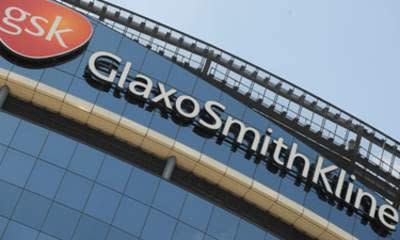GSK Fined £38m For 'Stifling' Drug Competition

Drug giant GlaxoSmithKline (Amsterdam: GO8.AS - news) (GSK) has been fined £37.6m for "illegal behaviour designed to stifle competition at the expense of the NHS and taxpayers".
The decision by the Competition and Markets Authority (CMA) relates to £50m of payments made to rivals for them to effectively delay the release of the anti-depressant paroxetine drug.
GSK's branded version of the drug, Seroxat, was then able to continue its monopoly over the market for this "blockbuster" product.
The CMA say that these "pay-for-delay" agreements "deferred the competition that the threat of independent generic entry could offer, and potentially deprived the National Health Service of the significant price falls that generally result from generic competition".
According to the CMA when the rivals were eventually able to enter the market at the end of 2003, average paroxetine prices dropped by more than 70% in two years.
It is the largest fine since the CMA began operating nearly two years ago, and among the biggest in the UK competition law history.
The ruling centres on a product - Seroxat - for which 4.2 million UK prescriptions were issued in 2000. Sales exceeded £90m in 2001.
In that year, two smaller rivals - including Generics (UK) Limited (GUK) and Alphapharma - were taking steps to enter the UK market for the first time but GSK began legal proceedings against them alleging they would infringe its patent.
The CMA said that before the litigation went to trial, GUK and Alphapharma made agreements with the larger firm which included terms banning their independent entry into the UK paroxetine market.
It found that these agreements infringed competition law. It has fined the companies involved a total of £45m - £37.6m for GSK and £7.4m in relation to the other two companies.
Michael Grenfell, head of enforcement at the CMA, said: "Today’s decision sends out a strong message that we will tackle illegal behaviour that is designed to stifle competition at the expense of customers - in this case, the NHS and, ultimately, taxpayers.
"This investigation shows our determination to take enforcement action against illegal anti-competitive practices in sectors big and small.
"Cracking down on these practices is essential to protect consumers, to encourage legitimate business activity that such practices stifle, and to stimulate innovation and growth."
GSK disagrees with the ruling, is considering a possible appeal, and says it entered into the agreements at the time in order to settle costly, complex and uncertain patent disputes.
The firm, based in Brentford, west London, said: "The agreements allowed the generics companies to enter the market early with a paroxetine product and ultimately enabled a saving of over £15m to the NHS."

 Yahoo Finance
Yahoo Finance 